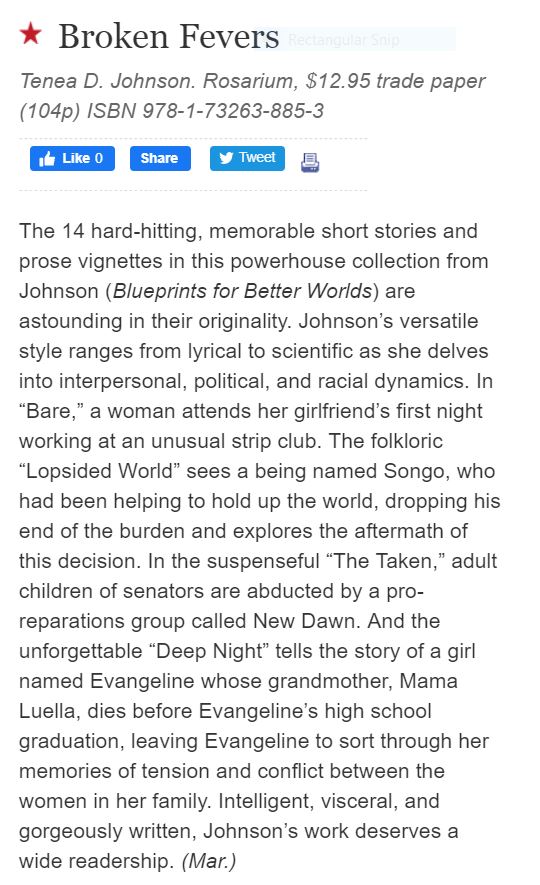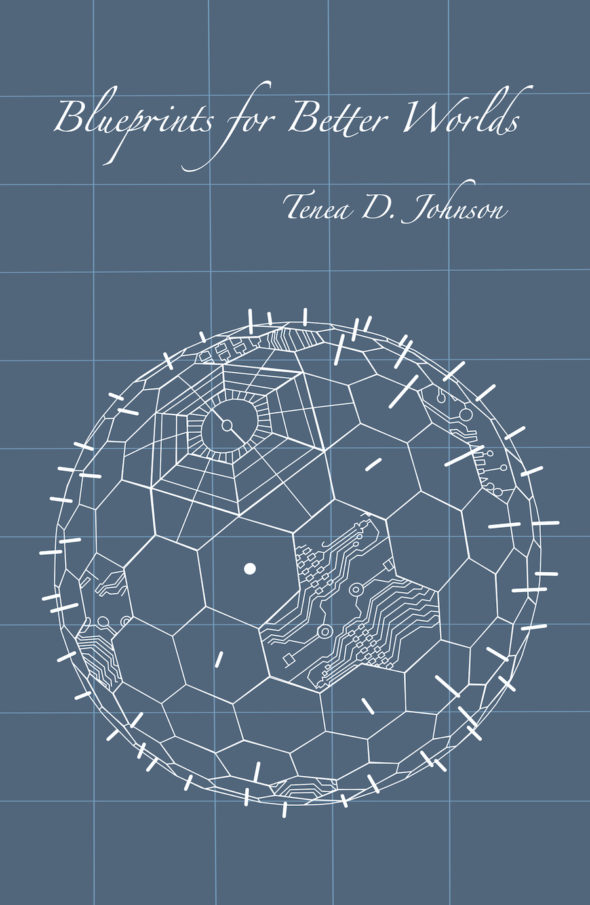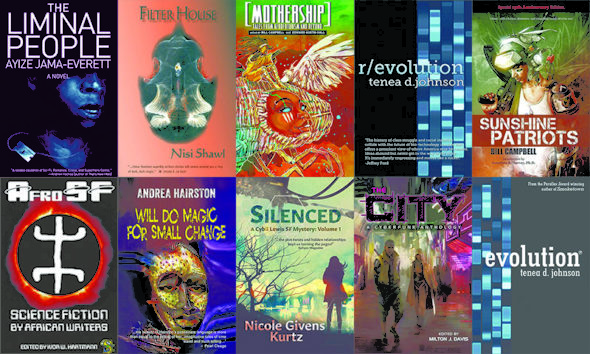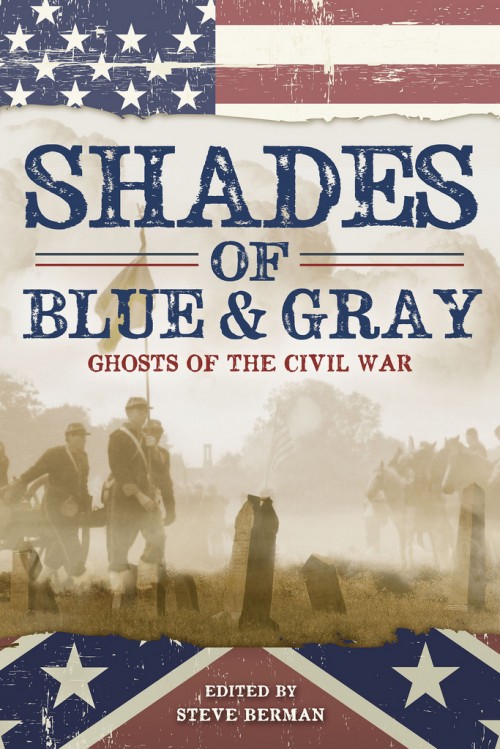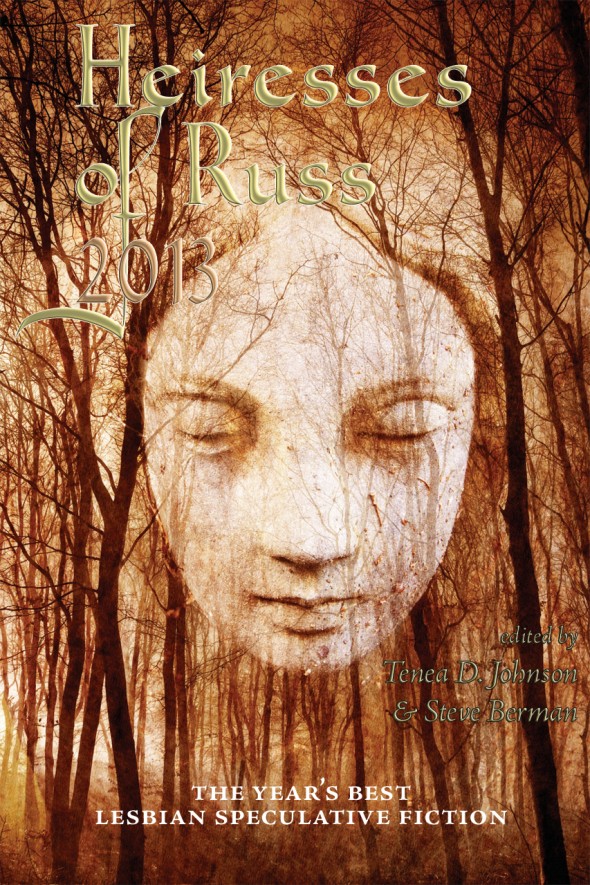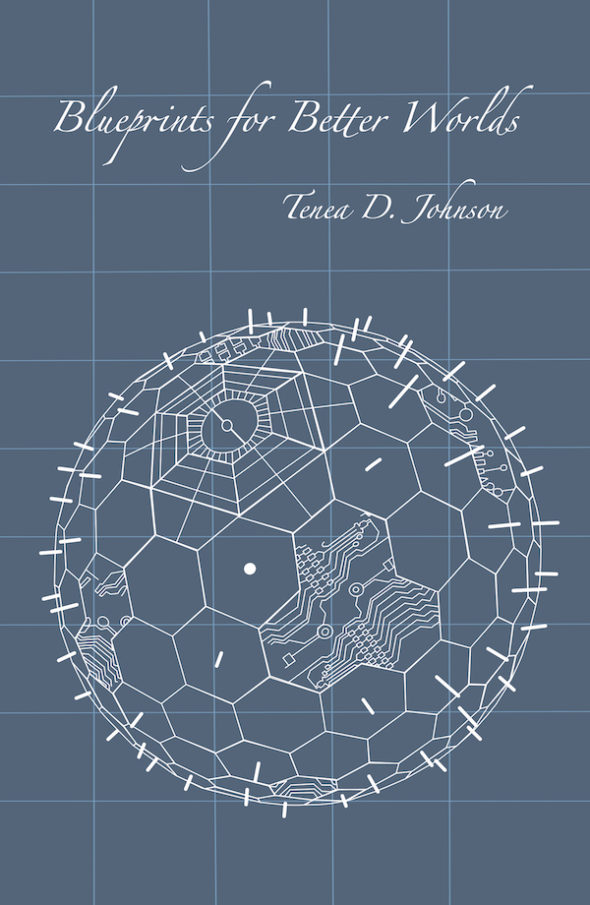New in 2022 – Winter Events
Full disclosure: I’m much better about doing things than talking about them. This year I’ll try to improve. In that vein, some new blood:
Just a few weeks ago on January 27th, I shared a new speculative story, “The Exhibit” inspired by the work of Emma Amos and the unfortunate current state of American affairs as part of the Museum of Fine Art St. Petersburg celebration of the Spiral Collective, a short lived but impactful group of Black visual artists in the Civil Rights era. I had the good fortune to appear alongside the talented, Butch Thomas, a saxophonist who performed new work (accompanied by Aron Ferrer and Gumbi Ortiz) and Crantston Cumberbatch who shared a short film he wrote, directed and starred in. Here’s a picture of us looking appropriately capable of entertaining folks.
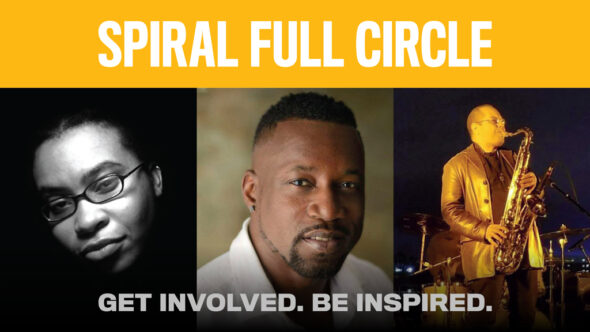
I had a wonderful time and enjoyed the community engagement. If you’d like to hear a bit of Butch’s work scroll through to the video here.
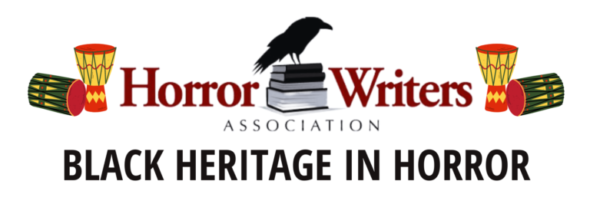
February also sees a couple of interviews come out. One is out today as part of the Horror Writers Associations Black Heritage in Horror interview series. So apparently I’m heritage. Thanks. I’ll take that.
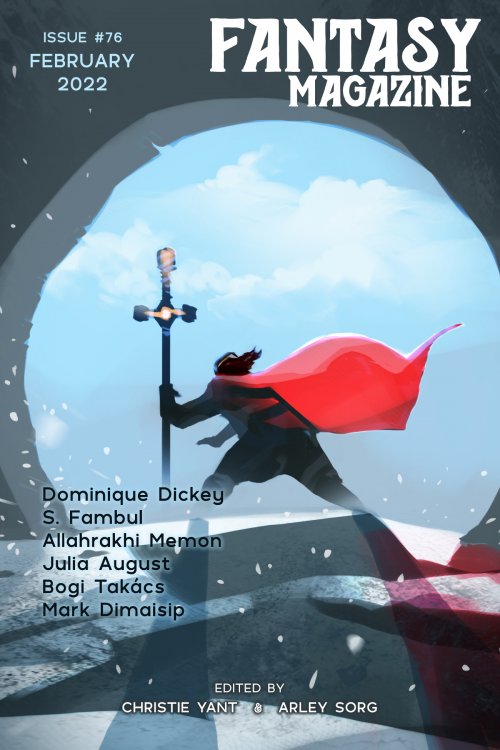
Later this month, you can check out my contribution to the group interview of short fictioneers in Fantasy Magazine (available online February 22nd) or right now if you have a subscription and/or purchase the e-issue.
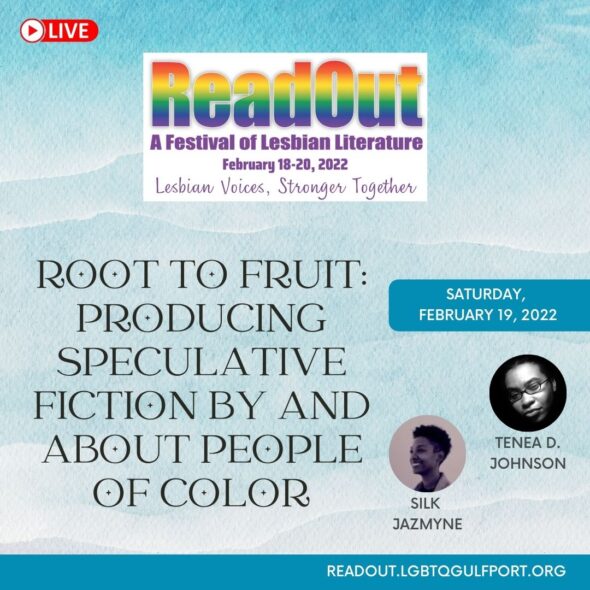
And (check me out getting out ahead of an event) on February 19th, I’ll be joining Silk Jazmyne to read and discuss life and work as a POC author at ReadOut’s event, Root to Fruit: Producing Speculative Fiction By and About People of Color @1:50pm EST. For those who enjoy multimedia work, there’ll also be video of a short performance from 2021’s, Frequencies, a Fiction Album playing as part of a few sci fi, fantasy readings from 1:15-1:45. For Root to Fruit I’ll be reading from 2021’s Broken Fevers. It’s all on Zoom so everyone’s invited. Just register on the ReadOut (“Out” as in a festival of lesbian literature page.
Frequencies, a Fiction Album Is Here
They’re all special to me but something a little different this time. Just between you and me, there will be a damn fine deal on this one next week, but for those who hate waiting, you can hear the opening now. And if you absolutely loathe it, you can get your own copy from a secure site, complete with a bonus track.
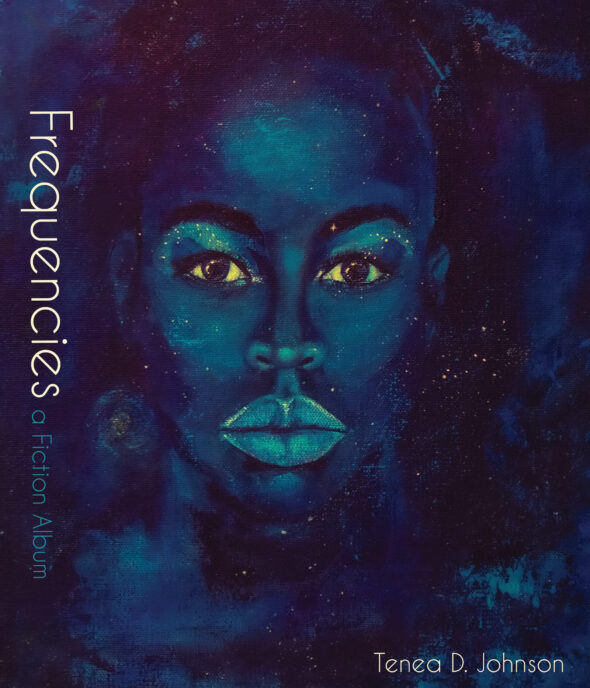
Cover Art by Kelly U. Johnson
Broken Fevers Virtual Book Launch
To register for the upcoming book launch, 3.3.21, please see the Google Form here.
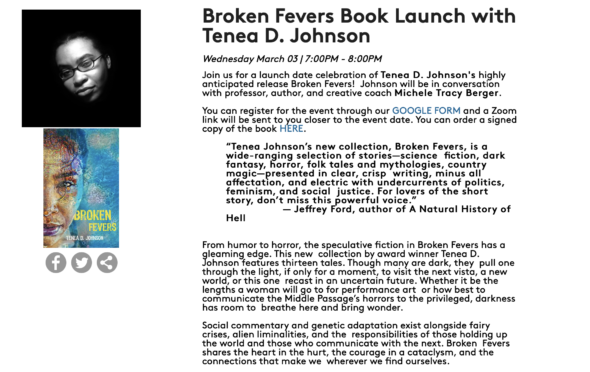
Evolution Review
Evolution’s first review is in: Apart from a story arc that spans the best part of 200 hundred years, there’s one particular aspect that stands out most clearly about Evolution. Johnson writes hope into her work. She builds it in, gently, quietly, without fanfare. It isn’t obvious at first, just a soft nudge here and there—in the face of gassed populations, dengue fever and total injustice, you think you’re mistaken at first. Around every page turn, you’re expecting disaster, and there are enough of those to justify the lack of belief you have that hope could even be a thing in such a world. But keep reading.For that, Johnson is currently my total writing hero….
Revolution: The Lost Recordings
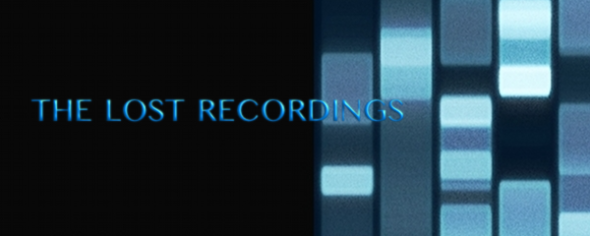
Revolution came first, then exclusively in the Afrofuturism storybundle,the Evolution ebook. On the horizon, Evolution in print and The Lost Recordings. Here, a bit of the latter.
Q&A: Afrofuturism Authors on Writing
Nicole Givens Kurtz, Andrea Hairston, Ivor Hartmann, Nisi Shawl and Ayize Jama-Everett, each featured in the Afrofuturism storybundle, open a window into their writing worlds. In the remaining days that the bundle is available, I’ll also share a closer look into each one. Ivor will be next up. For now, the group’s views on books and writing:
What’s the first book you really connected with? Made you cry? Laugh out loud?
The first book is lost to the mists of time.
Charlotte’s Web had me weeping, made me wake my mother up, talking ‘bout, “she’s dead! She’s dead!” My mother couldn’t figure out who was dead, but hugged me while I wailed! And then she realized it was a spider, from a book!
—Andrea Hairston
The first book I really connected with? I’ve been reading for almost sixty years now, so I may not be able to give you an accurate answer at this point. Tatsinda, by Elizabeth Enright, is the first book in whose protagonist I saw myself, so let’s go with that one. If you’re looking into buying it, be sure to pick the one with illustrations by Irene Haas. They’re essential. The plot is about this girl who is a little less white than the people she lives with, who all have silvery hair and blue eyes. Their magical kingdom is threatened by trolls and she saves them with her excellent rug weaving.
—Nisi Shawl
Impossible question for me really, I was six when the reading bug caught me wholly so I don’t remember which book it was that did that but there must have been one. However, the last book to do that to me was Petina Gappah’s Rotten Row.
—Ivor Hartmann
What subject do you find most difficult to write about? Most effortless?
Can they be the same thing? I love writing about fights and food. My next novel should be about food fights. But the choreography of physical combat and the innate sensualness of anything that is offered to the mouth make the writing effortless and enjoyable. I tend to stay away from real life events though I have experimented. Nonfiction is probably something I should push myself to write more but I think I need to hang in some plain old narrative fiction for a while before I do that. The idea that a mundane life can be worthy of insight given the proper attention to the craft of writing is not revelatory but expansive for a kid who grew up reading sci-fi and comics.
—Ayize Jama-Everett
Nothing is effortless. It all takes effort. People who think writing is easy have another think coming. That said, probably the hardest for me to write is harm. I love my characters—the vast majority of them, at least. Very difficult to portray them being hurt in any way.
—Nisi Shawl
The subject I find the most difficult to write about is black women’s pain. I do write about it, because that is a part of me; however, I find it so hard to revisit those painful points in my life or in the lives of others. It isn’t always necessary for the story, but when it is, that is where the writing gets tough. The challenge is to find words that can articulate something that is too large, too great, too painful to fit into words. How to do that?
Nothing I write about is effortless! It always takes work, sweat, and tears to produce a book. It’s like giving birth to a child. You nurture the story idea for months, watch it grow into a novel, then deliver it, but during those nine months there is hysterical crying fits, nausea, and difficulty sleeping. There are days when you food binge because your characters have you stressed and other days were you can’t eat at all because, well, your characters have you stressed.
—Nicole Givens Kurtz
How do you measure writing success?
Do I want to read it again as soon as I’m done writing it? This applies to the sentence, the paragraph, the page, and of course the book. It’s a hard mark and often I fail at it. But that’s the goal. I can’t focus on outside markers of success because they’re so fickle. I have to go internal. Of course, if I know others are appreciating the work, that always helps. But you rarely get that affirmation while writing. It’s usually only after. And for me, I’m barely online for more than ten or fifteen minutes a day. So I don’t really interact with my fans that much. So when someone comes up to me at a reading or what not and they say they enjoy the book, it blows me out the water. I’m stunned. Same with an email. I got a few messages from guys in prison who said my book was the first they read all the way cover to cover. That made my month.
—Ayzie Jama-Everett
I measure writing success by how it impacts people. If people tell me via review or posts or tweets that they enjoyed the novel or if they’re demanding the next installment, then I feel the story was successful. Of course, I would love to be a NYT Bestselling author, and that’s one measure of success. For me, if I find an audience that truly enjoys my writing or someone said it stuck with them, then I feel successful.
—Nicole Givens Kurtz
I am constantly measuring my own writing success! There are so many different yardsticks to go by: publication, sales, advance amounts, awards, reprints, reviews, “Best of” anthologies and lists…so many modes to fail of failure or triumph. Mostly this tracking is a private activity. I’d like to keep it that way.
—Nisi Shawl
Success is telling the stories you want to tell, how you want to tell them.
Success is challenging yourself and showing up every day for that challenge.
Success is having the generosity of spirit and the humility to connect with and support other artists.
Success is never giving up on getting better, but taking pleasure in what you have achieved.
—Andrea Hairston
What influences your work? People, other fields, other authors, events, histories?
My work is often influenced by real life events or situations I find myself, my friends, or strangers in. The entire beginning of my second Cybil Lewis novel, Cozened, began with me traveling to Phoenix and witnessing a car accident. The image of the glass and debris strewn across the road stuck with me and I went home and wrote the first chapter. The rest of the story fell in behind that singular event. As a black woman in America, there are many opportunities to tell my story and those who are like me. I’m inspired by advances in science too. For my novella, Replicated, the scientific news that an embryo had three DNA donors, instead of two, sparked the primary plot in the story.
—Nicole Givens Kurtz
I am an omnivore. I like to learn whatever there is to know. History, physics, music, math, biology, theatre, novels, economics, film…
—Andrea Hairston
See this post for authors who influence me. Other than that, I’d have to say music influences me tremendously. The titles of the stories in my Making Amends series, for instance, are inspired by the titles of songs—mainly Steely Dan songs. I listen to music when I write. Certain tunes haunt certain passages, though that may be imperceptible to my readers. The other major influence I can cite with certainty is the natural world: trees, waters, flowers, birds, weathers. Deer and other mammals. Fungi. I care so deeply about our environment. Can you tell by reading me?
—Nisi Shawl
What is it about books that fascinates you?
I like stories. I like a deep dive, wherever I can. I like art to engage the fullness of who I am. Good plays, books, films, music do this, each in their special mode.
Every story lends its shine to the next one I experience.
—Andrea Hairston
What fascinates me about books is the opportunity to live, briefly, in the lives of others. Although I may not spend much time in that world or universe, those experiences the character goes through stick with me. Those are thousands of lives I get to escape into when all I have is my one life. This gives me a chance to be a woman in China, a man on Mars, a wizard, and a shapeshifting tiger. I’m a lifelong learner. The excitement of acquiring new knowledge thrills me and it never gets old. The lessons the characters learn, I learn too. This is the allure of books to me as a reader. As a writer, I read to learn more about the craft and to be inspired.
—Nicole Givens Kurtz
What fascinates me about books is that, like human beings, they have both corporeal and a noncorporeal facets. Books have bodies: pages, binding, ink, illustrations. Pixels. Fonts. And they also have souls: stories, connections, references. Intentions. I don’t know of anything else to compare with them in that sense.
—Nisi Shawl
What’s in a Name? “Afrofuturism” & the Power/Challenge of Naming

Admittedly, I have a thing about names. I’ll correct you as many times as it takes before you say mine correctly. I’ll listen to you say your own and try to match it. My undergrad thesis focused on correctly contextualizing the work of Octavia Butler within genre, subgenre and ‘canon’. You see I just put canon in quotes so it shouldn’t surprise you that I had some of my own thoughts about naming a storybundle I curated, Afrofuturism. If you don’t know, there’s a bit of a discussion about the validity and context of this term as well as the power dynamics and agency of naming artistic moments/movements. Instead of rehashing said discussion, I’ll share what interested me as of late: what other authors in the bundle thought about the term. I asked them to define it and to let me know about alternatives they prefer. So without further ado, peep this:
Ayize Jama-Everett, author of The Liminal People:
Guh!! Yeah, always the landmine of BS to get into. All I can say is that when I first started tooling around on forums and stuff in the mid-nineties, I found the Afrofuturism listserv. It was the only place online where I got to talk about black stuff without it being predicated on some Black (Not a typo) to Africa type ish. It was through that forum I learned about DDC (Deep Dick Collective, Pomo Afro Homos), the works of Kodwo Eshun, John Akomfrah, Greg Tate, and my friend from those days until now, Nalo Hopkinson. It was a community for me, not a movement. I should also say it was a community I sometimes pissed off and didn’t always agree with. But that’s what real community is, a dynamic and sometimes contradictory place.
I think a better descriptor of my work might be Speculative Fiction, but I acknowledge something gets lost in that, namely the fact that race is a feature, if not the main feature of a lot of my work. I also can hear the arguments that the Afro in Afrofuturism, ironically erases the African element and can be seen as regressive or even insulting. I’m not really sure what the proper response to all of it is. Labels, by their nature, can be both liberating and restrictive. Afrofuturism, as a label, hasn’t squared that circle. But my personal connection to it will always be liberatory.
Nicole Givens Kurtz, author of Silenced:
Afrofuturism is a speculative asthetic that centers Africans from the mainland and the disaposra in creative areas of music, film, art, and writing.
Andrea Hairston, author of Will Do Magic for Small Change
I’m not big on genre definitions, so I wouldn’t define it.
I like hanging in the borderlands, in the fuzzy liminal mappings of stories.
I’m more interested in what works to tell a particular story than in the set of protocols that might be used to categorize it. That said, all of my future speculations are African inflected. I shine my little light through the prism of the diaspora.
Nisi Shawl, author of Filter House
My definition of Afrofuturism is “an aesthetic projecting African-derived culture and values into the future, often with a strong ‘own voices’ component.” That’s the definition I used in the lecture I recently gave on the topic for the King County Public Library System. I’ll add that the “future” may be chronological, as in years away, or it may be technological—see Wakanda. The other term I use is AfroRetrofuturism. Retrofuturism is another name for steampunk; it focuses on how steampunks blend elements of the past and present or future achievements. AfroRetrofuturism centers African-derived culture and values in that blend. My novel Everfair is AfroRetrofuturist. So is K. Tempest Bradford’s story “The Copper Scarab,” which appears in the anthology Clockwork Cairo.
Ivor Hartmann, editor of AfroSF
Afrofuturism seems quite well defined already, so for me to do so would be fairly presumptuous. I have an immense respect for the Afrofuturist movement from even before it was named. It has done so much for so many to create a much-needed space that didn’t compromise or white-wash unique creative output. That said, for the burgeoning African SF scene I do think we need our own identity that works for us in the same way. It has been all too easy for academics, reviewers, etc., to slot us into Afrofuturism and think no more about it. This is why in the last few years we have collectively, for the most part, come to prefer Africanfuturism. However, Afrofuturism and Africanfuturism are not, and cannot be, mutually exclusive. This is why I have no problems with AfroSF being in this Afrofuturist storybundle. We still have so much work to do to re/claim space in a field that is still largely dominated by western-centric whiteness. We can’t let labels get in the way of our unity and forward progress, together, uncompromised. We are always stronger together than we ever have been apart. In an ideal world we’d all just be Science Fiction writers, but this is not the world we live in.
Evolution Now Available in Afrofuturism Storybundle
The second book in the Revolution duology is out. As a special bonus to readers, for the next 3 weeks the ebook is available exclusively in an Afrofuturism storybundle. What’s the bonus? For $15 you receive Evolution, Revolution and EIGHT other Afro/African Futurism titles including a Tiptree winner, modern classic and Pan-African anthology of speculative fiction featuring African authors. You can find all of them right here.
Stay tuned for the print edition release in early June
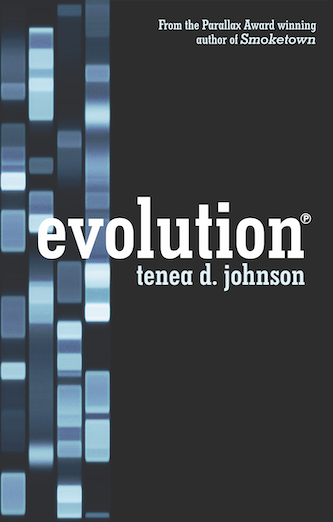
New Smoketown Review
Dear Author has just reviewed, Smoketown and here’s a bit of the reviewer had to say:
“The characters each had not exactly a secret, but maybe a small mystery behind them, which are first hinted at and then revealed in each individual’s “song” which is played in the main symphony. I say “song” not because every character in the book was singing, but because at times the writing felt very musical and very passionate to me . . . I truly did feel that the city of Leodaire was a living breathing thing in this book; the city which was still hurting from the traumatic event of its past and which finally started healing at the end of the book. I really loved how the hope and darkness are both present in this story and that hope eventually prevails.”
The full review is available here.
Heiresses of Russ 2013
I’m happy to announce that my co-editor, Steve Berman, and I have made the final selections for this year’s edition of Heiresses of Russ. It’s a great list of authors and stories. We can’t wait to present them to you all. They are:
“Harrowing Emily” by Megan Arkenberg
“Reality Girl” by Richard Bowes
“The Witch Sea” by Sara Diemer
“Saint Louis 1990” by Jewelle Gomez
“Narrative Only” by Kate Harrad
“Nightfall in the Scent Garden” by Claire Humphrey
“Elm” by Jamie Killen
“Beneath Impossible Circumstances” by Andrea Kneeland
“One True Love” by Malinda Lo
“Winter Scheming” by Brit Mandelo
“Feed Me the Bones of Our Saints” by Alex Daley McFarlane
“Nine Days Seven Tears” by JL Merrow
“Oracle Gretel” by Julia Rios
“Otherwise” by Nisi Shawl
“Chang’e Dashes from the Moon” by Benjanun Sriduangkaew
“Astrophilia” by Carrie Vaughn
“Barnstormers” by Wendy Wagner”
Book Excerpt up at Shewired
Shewired has posted an excerpt of Smoketown on their site. You can check it out here.
R/evolution and Smoketown Ebooks Up at Weightless Books
Just in time for Fat Tuesday, both novels are up on the wonderful Weightless Books , home of some amazing writing and all is DRM-free! For more about Weightless check out this PW article
Short Movie for R/evolution up at YouTube
A new short film of The Measure of a Man, a chapter of R/evolution premiered at the L Train theater this past weekend and can now be found up at YouTube here
If you’ve got 4.5 minutes, there are worse ways to spend it.

